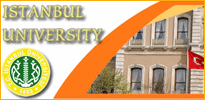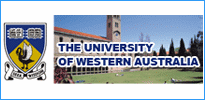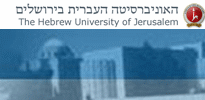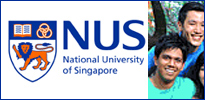Africa > Africa Education Report
Africa: Africa Education Report
2014/03/10

Africa' primary school enrolment has increased so much since 2000 from an average of 56% to 73% according to the most recent data. A remarkable progress have been made from many countries getting more children, especially girls, into school.
- However, one in four children in sub-Saharan Africa does not go to school – a total of 32 million primary-school-age children. This is almost half (45%) of the global out-ofschool population.
- Around 54% of children out of school are girls. In sub-Saharan Africa, almost 12 million girls may never enroll. Girls are getting left behind – fewer than half of the countries with data have equal numbers of girls and boys in school.
- While enrolment rates are rising, millions of children enter primary school only to drop out before completing a full primary cycle. Some 28 million pupils in sub-Saharan Africa drop out each year.
- Only one in three youths (34%) attends secondary school – the world’s lowest level.
- about 38% of the adult population in sub-Saharan Africa, or 153 million adults, cannot read or write. Over 60% of these are women.
- • A total of 1.2 million additional teachers are needed in the region to reach the internationally agreed goal of getting all children into primary school by 2015.
- Girls, the poor, those living in remote rural areas or speaking a minority language, and children living in conflict zones are often excluded from education. In Nigeria, a child spends approximately 6.5 years in school on average. A wealthy urban child averages around 10 years, while poor rural Hausa girls average less than six months in school.
- Aid levels to basic education in sub-Saharan Africa have dropped – from US$1.72 billion in 2007 to $1.65 billion in 2008. Taking into account rising enrolment in primary schools, spending per pupil has dropped by 7%
Some countries are moving ahead:
 Ethiopia. Since the beginning of the millennium, Ethiopia has registered one of the fastest increases in primary education in sub-Saharan Africa – doubling enrolment to reach 71%. It has cut the number of out-of-school children by over 3 million. While the country still has a long way to go to having all children in school, it has made dramatic advances in improving access and tackling inequalities. One important factor has been an ambitious school construction programme in rural areas, which has spurred demand by reducing the distance to school and addressing security concerns for girls. Of the nearly 6,000 schools built since 1997, 85% are in rural areas. This has reduced distance to school and unlocked demand for education, especially for girls, as distance is a significant barrier to girls’ participation in education. Textbook distribution has improved and content revised to be more relevant: schoolbooks are now published in twenty-two local languages.
Ethiopia. Since the beginning of the millennium, Ethiopia has registered one of the fastest increases in primary education in sub-Saharan Africa – doubling enrolment to reach 71%. It has cut the number of out-of-school children by over 3 million. While the country still has a long way to go to having all children in school, it has made dramatic advances in improving access and tackling inequalities. One important factor has been an ambitious school construction programme in rural areas, which has spurred demand by reducing the distance to school and addressing security concerns for girls. Of the nearly 6,000 schools built since 1997, 85% are in rural areas. This has reduced distance to school and unlocked demand for education, especially for girls, as distance is a significant barrier to girls’ participation in education. Textbook distribution has improved and content revised to be more relevant: schoolbooks are now published in twenty-two local languages.United Republic of Tanzania. United Republic of Tanzania has made rapid progress towards making primary education universal. In 1999, only half of school-age children attended primary school. Today, nearly all children attend primary school. This is thanks to the abolition of primary school fees in 2001, increased public investment and measures to enhance education quality. Public education spending rose from 2.2% of GNP in 1999 to 7.1% in 2008. Between 2002 and 2004 some 30,000 new classrooms were built, and an additional 32,000 primary school teachers were recruited.
Benin. Benin has been among the world’s fastest moving countries on primary enrolment, with the net enrolment ratio rising from 50% in 1999 to 80% in 2007. The gender gap also narrowed, going from just 68 girls to every 100 boys in school in 1999 to 84 girls in 2007. On current trends, Benin could meet the goals of reaching universal primary education by 2015.
Maintaining the trend will be difficult, however. Rapid progress in enrolment has brought new policy challenges, such as raising completion rates, reducing regional disparities and tackling poverty.
Senegal. With some of the world’s largest gender gaps, several countries in West Africa have adopted policies aimed at strengthening parity as part of the wider strategy for achieving universal primary education. In the space of one primary school generation, Senegal has moved from a gender parity index of 88 girls per 100 boys in 1999 to an equal number of girls and boys in school in 2007.

Higher Education is critical for development
Science, technology,innovation, vocational training and skills development are particularly important for increasing Africa’s competitiveness.To reform and transform higher education systems as well as technical and vocational training in science, technology and innovationin order to accelerate economic growth in Africa.
The Higher Education, Science and Technology (HEST) strategy was designed to assist member countries to strengthen their educational systems , particularly tertiary education , science , technology , technical and vocational education as well as training . Given the years of neglect of the tertiary sector and the impossibility of supporting construction and rehabilitation Africa-wide.
Three major areas: supporting centers of excellence; ensuring infrastructure and training in specific areas – agriculture and livestock, health sciences and health delivery support services, engineering, business enterprise,、 training teachers and educational management – and strengthening links with the labor market so that trained students can use their knowledge and skills productively.
Strategy complements the 1999 Education Sector Policy which promotes growth in Africa and builds the critical mass of skills necessary to increase its economic competitiveness.
Support for National and Regional Centers of Excellence is helping to create or reinforce networks of higher education, science and technology institutions by harmonizing and linking training programs in different countries so that national institutions can benefit from the staff and curriculum of excellent tertiary education institutions and vocational training centers. The curricular focus of science and technology institutes includes: agriculture and livestock; engineering, infrastructure and water; health services and infrastructure; ICTs and financial management services, among other areas. To ensure adequate faculty participation, experts from the African diaspora are invited to work in these centers of excellence, either on a face-to-face or distance basis.
To help ensure that students are well prepared for tertiary training, the Bank is simultaneously supporting improved science and mathematics teaching in primary and secondary education by helping to provide qualified teachers.
Infrastructure for Higher Education and Science and Technology Infrastructure is critical for HEST. Supports the construction, upgrading and rehabilitation of selected higher education institutions, in particular, research schools and centers, and provides resources for laboratories to promote mathematics and science teaching for engineering, agriculture and human development through education and health. This support will help to create a critical mass of African scientists and technicians and increase access to affordable state-of-the-art re-4 search facilities. Fragile states emerging from civil wars and conflicts that have destroyed infrastructure also receive Bank support.
Reforms designed to establish an environment that is conducive to wider private sector participation and investment in higher education. There are many areas that offer good opportunities for employment for highly trained students. For example, the extractive industries – abundant natural resources are extracted throughout Africa – require specific skills directly or indirectly linked to their needs. Similarly, tourism has become a major investment sector in Africa and provides revenue to millions of people, but few countries have the trained human resources to provide competitive services (e.g., hotel services, roads, maintenance of infrastructure, construction, repairs, etc.).
In order to effectively target and meet these needs, organisations are helping to produce national and regional science and technology skills profiles and working with other partner institutions and the private sector to do the following:
-
Undertake Science, Technology and Innovation (STI) national and regional skills profiles.
-
Support member countries in developing national innovation action plans.
-
Strengthen HEST-industry linkages, with emphasis on creating incubators.
-
Promote and support measures to increase women’s participation in science and technology-related
-
training and research activities in all institutions benefiting from Bank support
-
Cultivate technology development through partnerships with the private sector
-
Integrate indigenous knowledge into innovation systems.
By supporting existing national and regional centers of excellence and promoting greater collaboration among institutions in and out of Africa, organisaitons aims to position African training institutions among the best in the world and to make them attractive choices for students and families. African countries have diverse needs for STI. Some have well developed quality basic education systems with high rates of completion and are quickly developing tertiary education systems; others are still essentially dealing with Education For All and at relatively early stages of tertiary education development. Therefore, demand for support in STI ranges from capacity building to policy advice to building STI infrastructure and establishing national and regional centers of excellence. Few countries are ready to engage with the private sector in building innovation systems and developing public-private partnerships in HEST.
 Partnerships with organisations interventions cannot, by themselves, meet all of the needs of educational systems.
Partnerships with organisations interventions cannot, by themselves, meet all of the needs of educational systems.Scarce resources require the private fund to focus on activities that add value to its investments. Significant efforts will be devoted to dialogue with member countries so that they focus on science and technology. In addition, other donors with similar or varying fields of interest are being encouraged to support higher education because no single development partner or country can provide even the most basic requirements to enable the HEST sector to play a role in an African economic revival.
The private sector is therefore a strategic partner in African higher education, which is a fast growing segment of post-primary education on the continent.
In many countries, private higher education operates in collaboration with foreign universities, including church/religious led partners. In most cases, however, inadequate legal provisions, high demand and poor monitoring on the part of governments have led to the mushrooming of unregulated private higher education.
To supports the creation of regional regulatory bodies for quality assurance in higher education and will act as a catalyst to bring private sector financing for incubators and innovations that increase value in the production chain. In addition to the private sector, the Bank will continue to strengthen its partnerships with other development and technical partners – in particular, the World Bank, the United Nations Educational, Scientific and Cultural Organization, the Agence Française de Développement, the Department for International Development, the African Union & New Partnership for Africa’s Development, the Association of African Universities, the United Nations Economic Commission for Africa, the Association for the Development of Education in Africa, and the African Capacity Building Foundation, among other partners.
- Africa News
-
- ABIDJAN: Microfinance lenders gaining ground in Côte d’Ivoire
- TUNISIA: Tunisia harvests growth in agriculture sector
- DJIBOUTI CITY: Djibouti’s tourism ambitions garner overseas support
- BOTSWANA: Tripartite Free Trade Area plods along slowly in Africa
- MAPUTO CITY: Shaken but not stirred: Mozambique's banks look forward with optimism
- NAMIBIA: Namibia, SA mourns anti-apartheid icon
- Trending Articles
-
- AFRICA: East Africa’s leading tourism fair kicks off
- UNITED ARAB EMIRATES: Etihad Cargo and Intradco Global Help bring endangered Rhinos home
- INDONESIA: Seychelles promotes eco-culture tourism in Kutai Kartanegara, Indonesia
- BRUNEI : The next chapter for the Trans-Pacific Partnership
- VIETNAM: Startups in Vietnam
- BOTSWANA: Study of mathematics on the decline in Africa – Prof Allotey














